Economy
Poverty
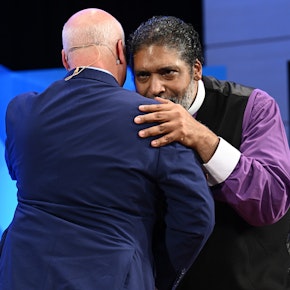
Poverty doesn’t care what color you are. Declining manufacturing jobs, income inequality and inadequate social safety nets affect all Americans. The problem of poverty demands a collective — and moral — response.

If one dives deeply into the statistics, the American Dream is actually quite alive and well. In his provocative book, The Myth of American Inequality, former U.S. senator Phil Gramm argues that the facts reveal a very different and better America than the one currently described by policy advocates across much of the political spectrum.
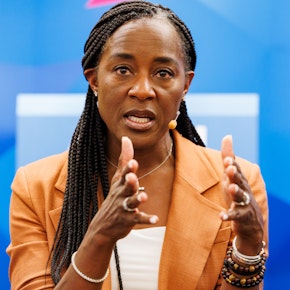
Alongside climate adaptation, wealth inequality is one of America’s most urgent problems. Learn from a diverse group of innovators about their contributions and commitments to a more equitable wealth agenda and why they are hopeful substantive progress will be made.

Philosophical and religious teachings regarding wealth can feel both archaic and strangely relevant to our age of economic upheaval. How can we reconcile these ideas about wealth — such as renunciation and warnings against attachment — with today’s urgent questions around inequality, the shrinking middle class, and the proper role of philanthropy in a good society?
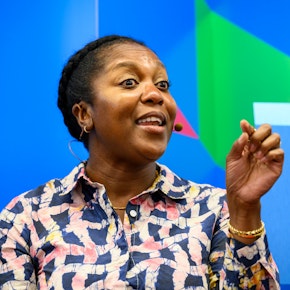
Despite high demand for nutritious foods, many Americans experience gaps, challenges, and barriers when it comes to access and agency over their nutrition. How can the public and private sector work together to unlock and advance a more inclusive state of nutrition for all? Presented by Danone
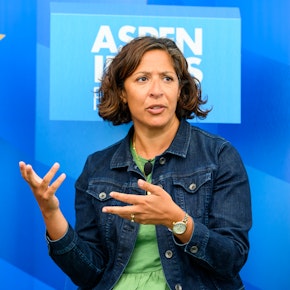
Join Deloitte, University of Colorado Boulder, and Aspen Institute experts for a conversation at the intersection of cutting-edge research and inclusive innovation on climate resilience. As severe weather and climate-driven natural disasters become the new norm, find out how to reduce climate-related risks across geographies and demographics. Presented by Deloitte

Allowing everyone a fair chance at economic prosperity and upward mobility is a goal we can all support. But, how? Leaders of investment disruptor Robinhood, the MacArthur Foundation, and Prudential join to discuss the systems, practices, and policies to provide greater access to capital markets.
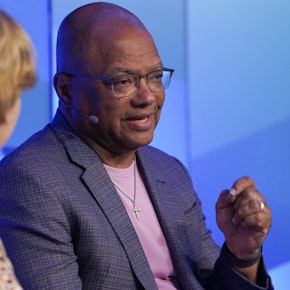
While internet connectivity, technology, and digital skills are central to every part of modern life, the unfortunate reality is that millions of Americans have been left behind. We’ll discuss how transformational investment in digital equity and inclusion is helping close the digital divide.
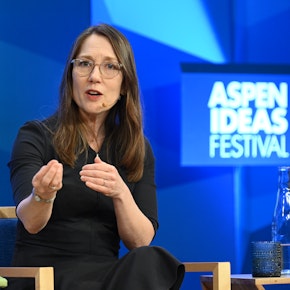
The 21st-century U.S. economy has faced significant challenges, of which the ripple effects — job loss, decreased access to credit, delayed investments, financial instability — have led to hardship for Americans and businesses alike. As the market ebbs in the wake of overlapping crises, how can a modern American Industrial strategy transform key economic sectors, strength...
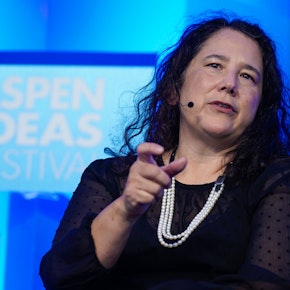
As U.S. cities adjust to a new post-pandemic normal — characterized by empty office buildings and decreased foot traffic — how are city and federal leaders working with small businesses to reimagine downtowns?

Over a century ago, Andrew Carnegie wrote the “Gospel of Wealth,” challenging his wealthy peers to be generous with their largesse. Today, in his new book, Ford Foundation president Darren Walker writes that inequality far surpasses that which Carnegie witnessed, and argues that the widening chasm between haves and have-nots demands a new approach to philanthropy.

No one is immune from the catastrophic storms, wildfires, heat waves, and drought that accompany climate change, but the risks are far greater for some populations than for others. Unstable housing, food insecurity, inadequate access to care, lack of tree canopy, and proximity to toxic emissions and other environmental hazards all intensify the health consequences. People...

The Aspen Challenge presents teams of high school students from New Orleans and Miami who have developed innovative solutions to issues that have impacted their communities. See these young changemakers take to the stage to prove that entrepreneurial community solutions can be created at any age. Learn how Benjamin Franklin High School at the Katherine Johnson Campus is ta...

While the United States has the world’s deepest and most liquid capital markets, and the largest number of billionaires in the world, we also have historic levels of wealth inequality and racial disparity. The very real risk: These disparities might not only undermine our economy but our democracy. What will it take to narrow the gap and build wealth equity in America? Wha...
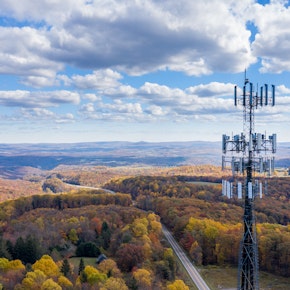
The pandemic has exposed long standing inequity when it comes to access and adoption of critical technologies, from broadband connections to laptops to digital literacy. These are the necessary conditions for children to learn, for young adults to acquire needed skills, for adults to find jobs, and to ensure everyone has access to the services they need. In this conversati...

With the hope that economic investment will lift citizens from poverty to a level of sustainable prosperity, entrepreneurs and organizations across the globe invest time, energy, and resources in the poorest areas. Sadly, many of these efforts fail. Applying rigorous and theory-driven analysis, two experts on global prosperity identify the limits of common economic develop...
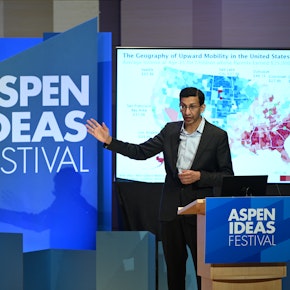
How do we develop scalable policy solutions that will empower families throughout the United States to rise out of poverty and achieve better life outcomes? How we can improve children’s opportunities in communities that currently offer limited prospects for upward income mobility? Award-winning Harvard scholar Raj Chetty, whose research focuses on equality of opportunity...
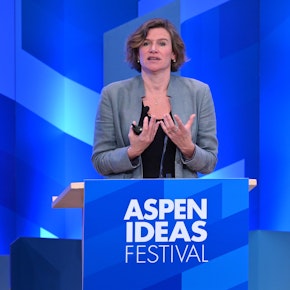
The award-winning economist Mariana Mazzucato has been called the “world’s scariest economist.” Why? She challenges us to reconsider capitalism as it exists today. Focusing on innovation-led, inclusive, and sustainable growth, Mazzucato examines the critical — and misunderstood — role that governments play in fostering innovation. Her latest book, The Value of Everything,...

In the summer of 2018, President Trump sang praises about the country’s economic conditions, tweeting, “In many ways this is the greatest economy in the HISTORY of America.” But just how much of the upswing can be attributed to White House policies? Former US Treasury Secretary Larry Summers says very little. He disagrees with Trump on trade, tariffs, and the rethinking of...
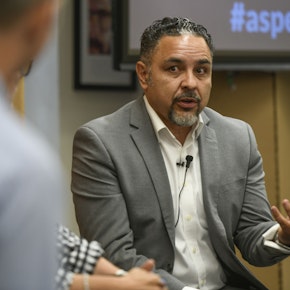
Financial-technology innovation is accelerating globally, making financial services more affordable, convenient, and secure for individuals and businesses. Billions of people — and entire economies — stand to benefit from this transition, but more work must be done to unlock the full potential of these innovations. What is fintech’s role in driving inclusive economic growt...

